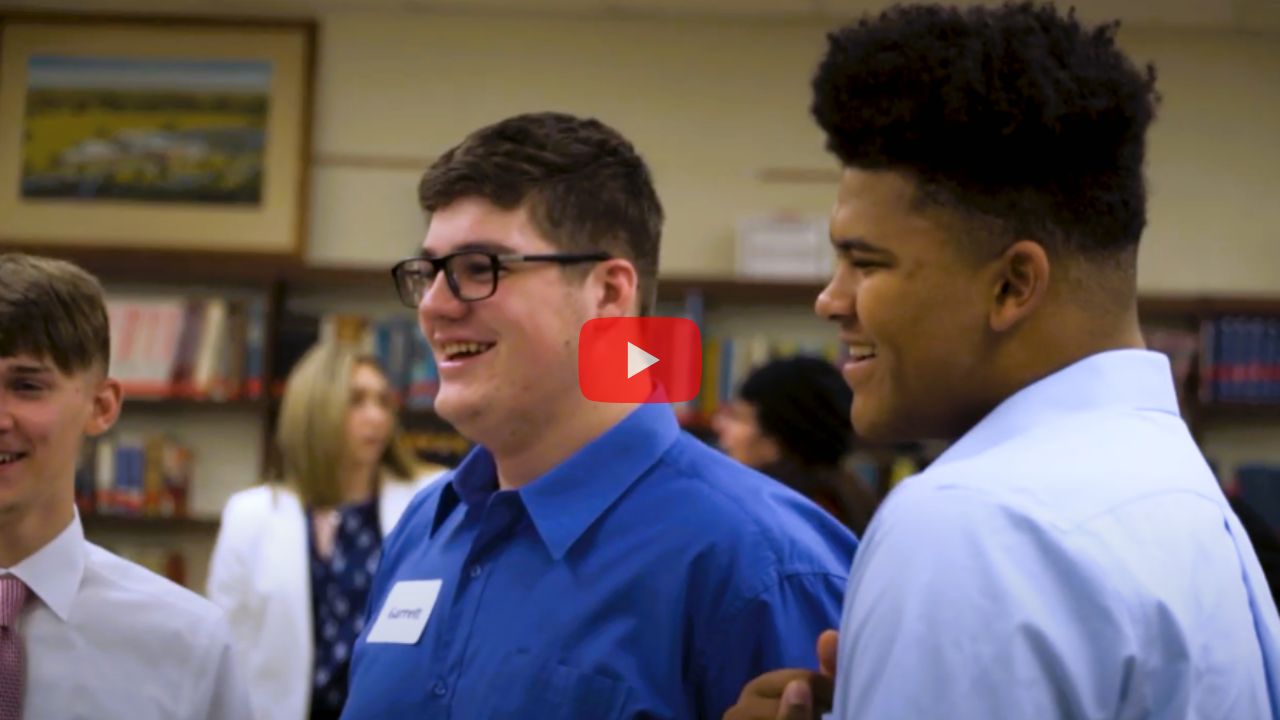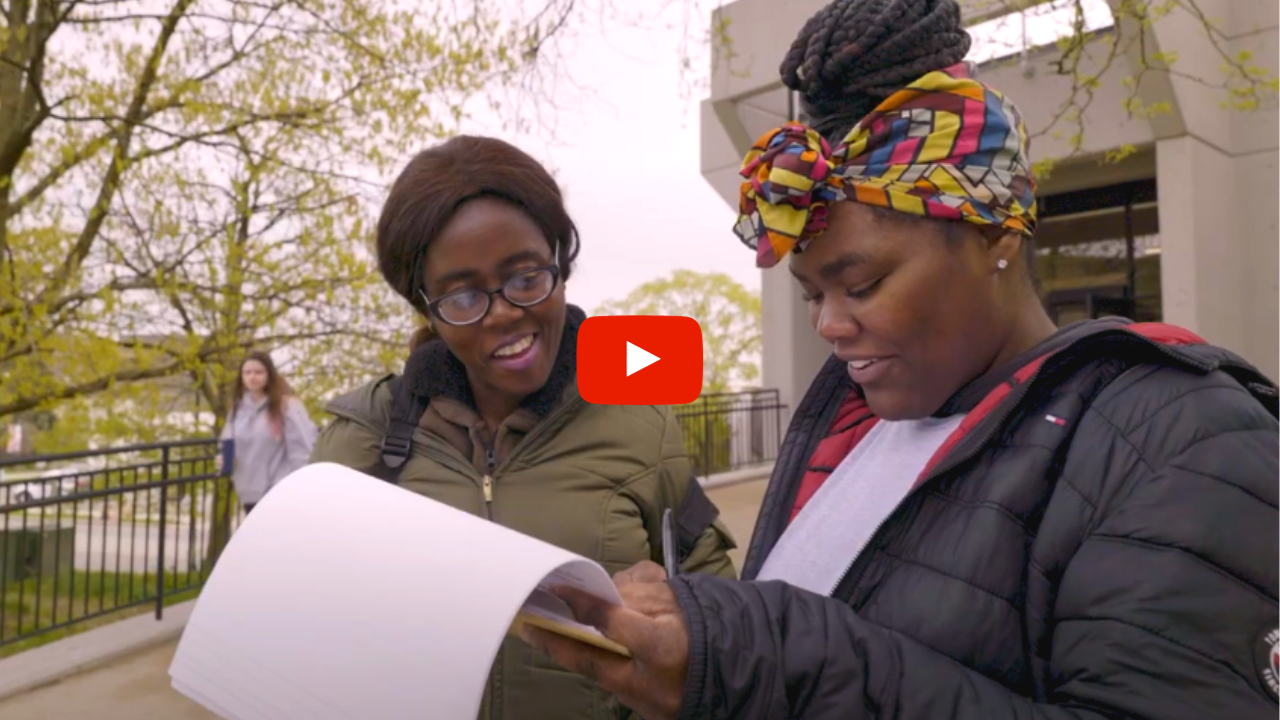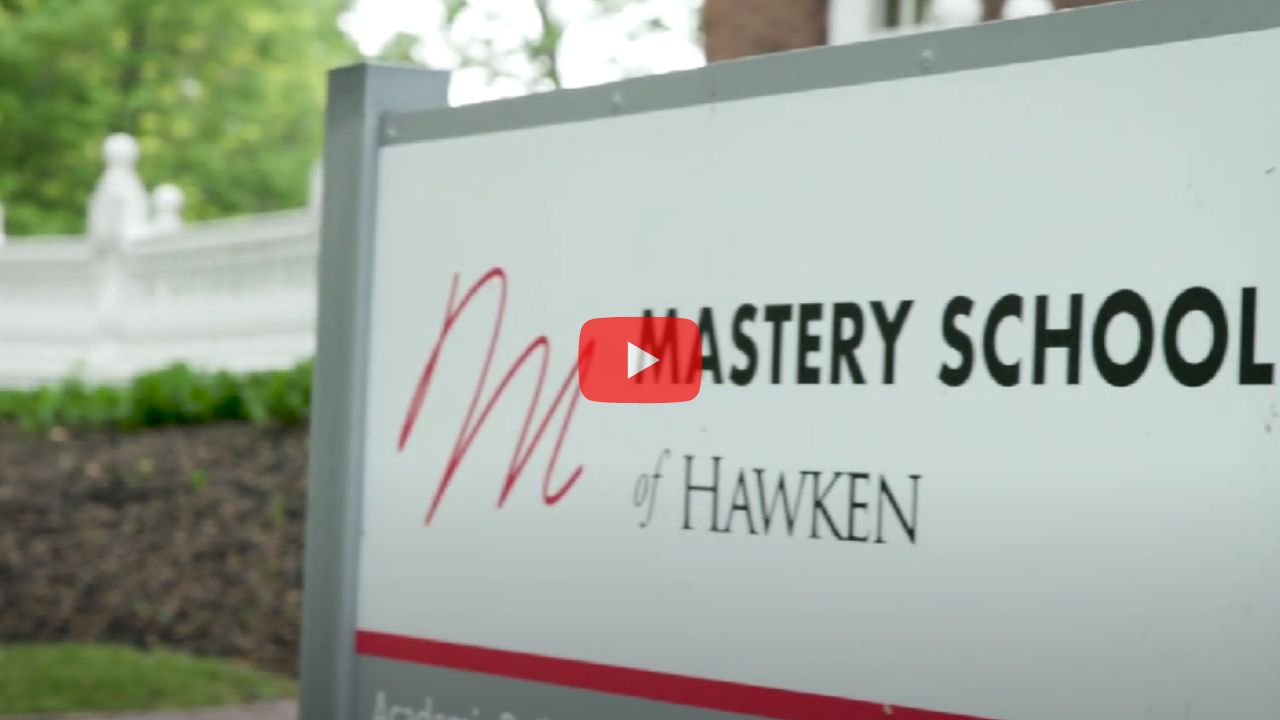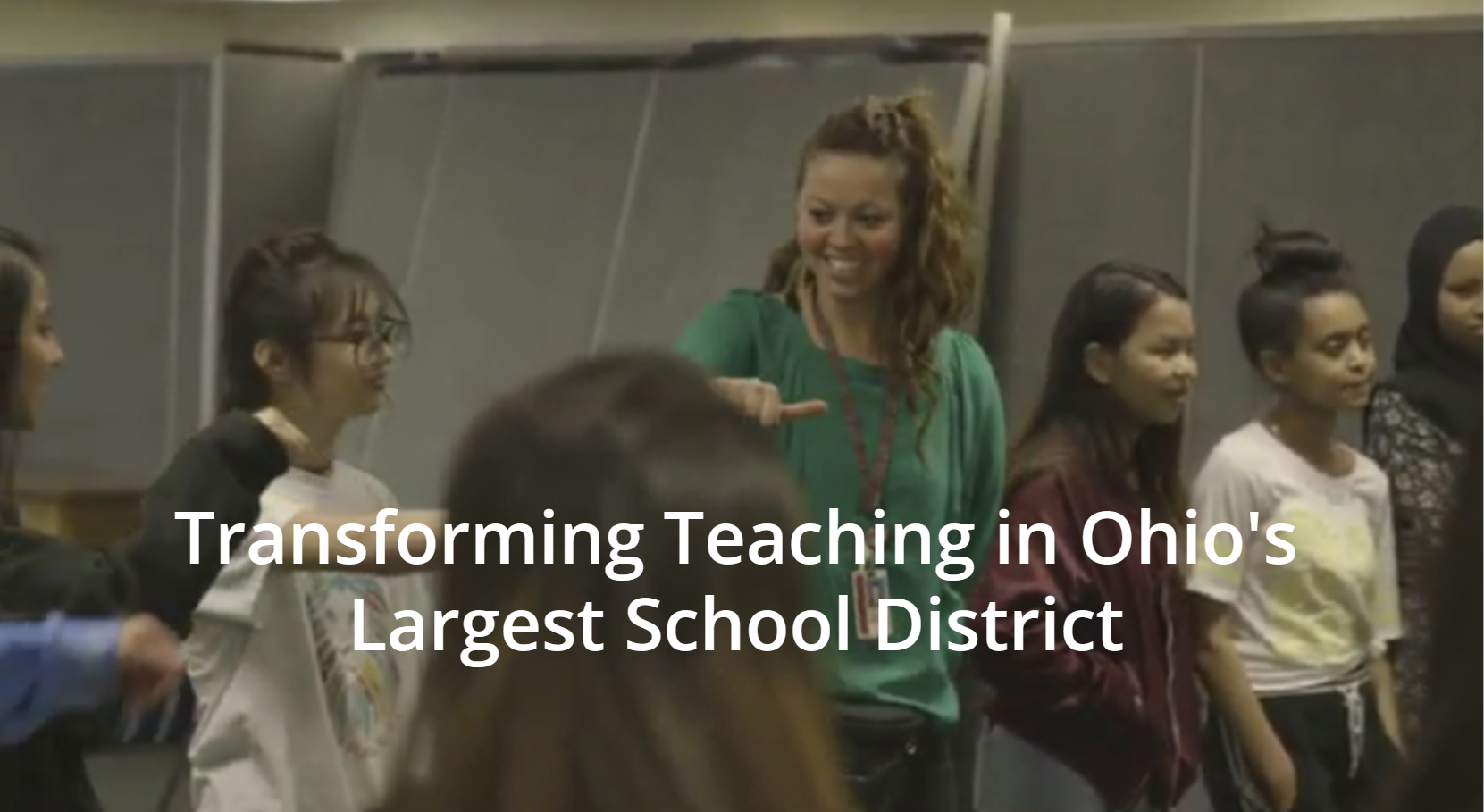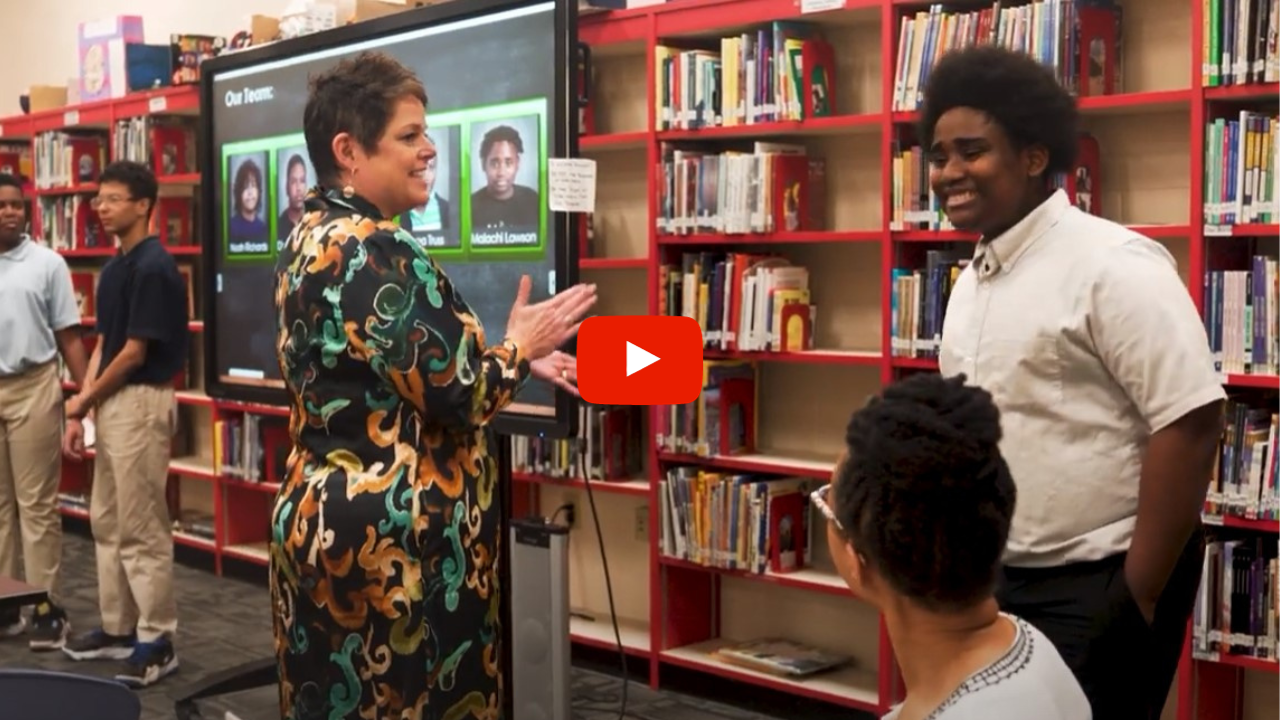Alison: So I was doing after school, weekend workshops, things like that. I focused on building an entrepreneurial mindset, and I remember in those early conversations when I was first coming on board, you kept saying how important it was to you that this was a high school course for academic credit. I wonder if you could explain more about why that is so important to this.
Doris: Okay, actually, that’s a great question. Because this sums up, in a way, what this is all about. I am really happy that even in this last year or two when I present or I talk to people or I meet people, it is pretty common knowledge now that education is broken.
Anybody you meet with when you say, “Education is broken,” they start nodding their head, like you’re doing right now. My mission is to do school better. “I can” is my personal mission, to the extent I can develop any approaches to education that are worth sharing with others, to basically prepare our youth for the world they’re going out into, for their changed world.
That’s what I want to work on, because I think education’s really failing our students, our youth, and it’s scary to me.
As you know, I taught for many years. I taught math. Taught kids, but taught math in a high school, and taught all kinds of students and all kinds of classes, but learned most by developing strategy after strategy after strategy for the students who don’t thrive in traditional school.
I saw the absolutely transformative power of having individual after individual student who, within the current system, felt like a complete failure, felt not smart, felt not capable. And they’re 14, 15, 16, 17, 18, trying to figure out, “Who am I? Am I successful? Am I not successful?”
We have this system that defines success, academic success really narrowly. Standardized tests, how do you perform, what’s your SAT score? Doesn’t matter what words we use, the students aren’t stupid. They grow up in a world where success is measured by how many you can get right in a constrained period of time.
Alison: Sure.
Doris: Okay? Even though in the rest of their lives, that ability, the ability to read a bunch of stuff, do a bunch of problems, spit it back exactly right a week later in only 45 minutes, that ability doesn’t really do much for you, if anything, in the world they’re going into now.
So I think entrepreneurship and entrepreneurship education, for all the reasons you know, I think it’s very exciting and very wonderful. But I also, more than anything else, more than anything else, what I wanted to do is create a model for how students can learn crazy amounts of really tough stuff and master skills.
The skills that really are going to matter and prepare them for the world they’re going into in an academic course done entirely differently, even students who others in school have not yet seen as successful or capable.
So it’s one thing to do a workshop or to do an after school program, and there’s huge learning that happens there, but my purpose is very different. I think the best way, by far, to explain what I’m talking about is to give a specific example, a story. I’m going to talk about something that I’ve affectionately dubbed de-schooling okay?
You really see what I’m talking about, that we’re trying to do here in the few weeks of the course. Hawken is a really amazing school. I’m very lucky to be here. It’s a progressive school, innovative. We have all kinds of cool programs, and teachers doing amazing things.
But it’s a high school. It’s a high school that students go through. They need to get their math courses, their science courses, their humanities courses, their etc. There are a lot of AP classes, etc. So when students come into this class, they consistently say it is radically different from anything they’ve ever taken before, and they consistently say it is very, very hard, they come in, frankly, passive.
They are waiting for me, for Tim, and now you, to give them the syllabus, the recipe. “Here are the things you, student, need to do to get your A. You’ll have x number of this and y number of that, and if you, personally, Alison, do these things and you do them to this level, you will get your A.” That’s what they’re used to. And if they’re students who typically get the As and the A pluses, they have that down. They know how to do that.
So they come into this class, and we take the rug out from under them. Because we say, “Well, actually, what’s going to happen is, the first day of class, the third day of class, we’re going to take you on a bus somewhere.
We’re not going to tell you where yet. You’re going to get your first business problem. And it’s going to be a real problem, and we’ll put you on a team, and you’ll have three weeks to solve it. By the way, you can’t get an A by yourself. And these are all problems that don’t have answers in the back of the book.”
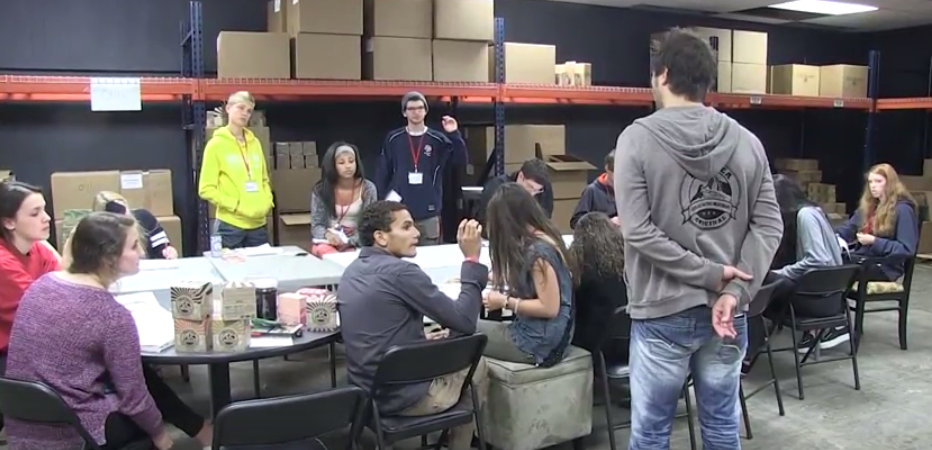
They don’t know, why would they, the first thing about any of the elements they’ll need to solve these problems. They don’t have anything in their toolkit, nothing. We immediately start assigning.
During class, even the first two days, we have them do . . . you don’t have a lot of time. So instead of trying to cram into two days lectures, we have them do some things where they learn by doing. Like the Business Model Canvas, some of the basic elementary things, the very beginnings of Design Thinking kinds of things. And then day three, ready or not, and of course they’re not, we throw them in.
There is, in those early days, they’re assigned a lot to read, videos to watch at night. They care to do it, because the minute they go into that first business, they learn about the business, and the CEO says, “Here’s my problem, and it’s a real one, and I’m losing sleep about it now, and I actually really care. What you can come up with could really help me, and it’s really vital to me, and I’ll be back in three weeks. Let me know.”
They’re sitting there with their eyes wide, completely convinced that they cannot in any way, shape, or form anything useful for this business. They have no clue. They don’t know where to start, they don’t know what the end looks like, they don’t even understand the wording that was used that day, nothing.
So they’re actually reading and watching the videos and whatever we’re assigning at night, hoping, “Oh, my gosh, maybe . . . “
Alison: “Maybe there’s something in here that . . . ” yeah.
Doris: Yeah, exactly. In the meantime, we’re doing all kinds of things during those first few weeks, because we know they don’t know. So like a workshop on how to interview well, but it’s a workshop where they’re doing. It’s not a . . .
Alison: A lecture.
Doris: Right. We’re pushing them to do different things while at the same time teaching them fundamental customer development, how to interview well, etc. All of them, by doing something related to the problem that they’ve now been assigned. So it’s never an abstraction, it’s never theoretical, it’s never, “Okay, now let us go over here, and we’ll teach you the theory behind it. Now put it into practice.” They have to.
Alison: They want to.
Doris: They want to be all into learning whatever we’re showing them, because they’re using it to solve this problem.
So anyway, in the meantime, the only way to do this with this kind of pressure well, is to give them lots and lots of direct feedback in the moment. What they do and what they come up with has to be evidence-based, has to be validated. Their inclination is to come up with opinions out of thin air . . .
Alison: Out of their 16 year old minds, yeah.
Doris: “Hey, Ms. Korda, what do you think? I came up with this as an answer. What do you think?” As you know, everything’s answered with a question. “Well, what is that based on? Where did you find that?” Blah, blah, blah.
So they’re literally not able to get their footing in those first three weeks, ever. Anything they do is unknown and uncertain going in, and doesn’t feel complete and done, ever, in the way that it feels when you ask to solve a math problem in class, and you come up with the answer.
Or you’re asked to do an essay on this in a humanities class, and then you hand it in, and you get a grade. Nothing feels like that. So their entire operating frame, their entire mode of operating, everything they’ve done to succeed in school, to operate in school, none of it. None of it applies in this class.
So they crazily, one after another after another, fall apart in some way in those early weeks. You can almost see it and feel it when each student has, during those first three weeks, at some point say, “I get it.” They literally shift their, not just mindset, but their entire operating approach shifts, and they realize, “Oh, this is about, really about, what I do, and how I do it, and my being all in. And it is about asking the questions.”
That whole shift and that whole change that happens during that first problem that they get is what sets them up, starting with the beginning of the second one, to learn problem solving, to learn critical thinking, to learn amazing communications, powerful communications.
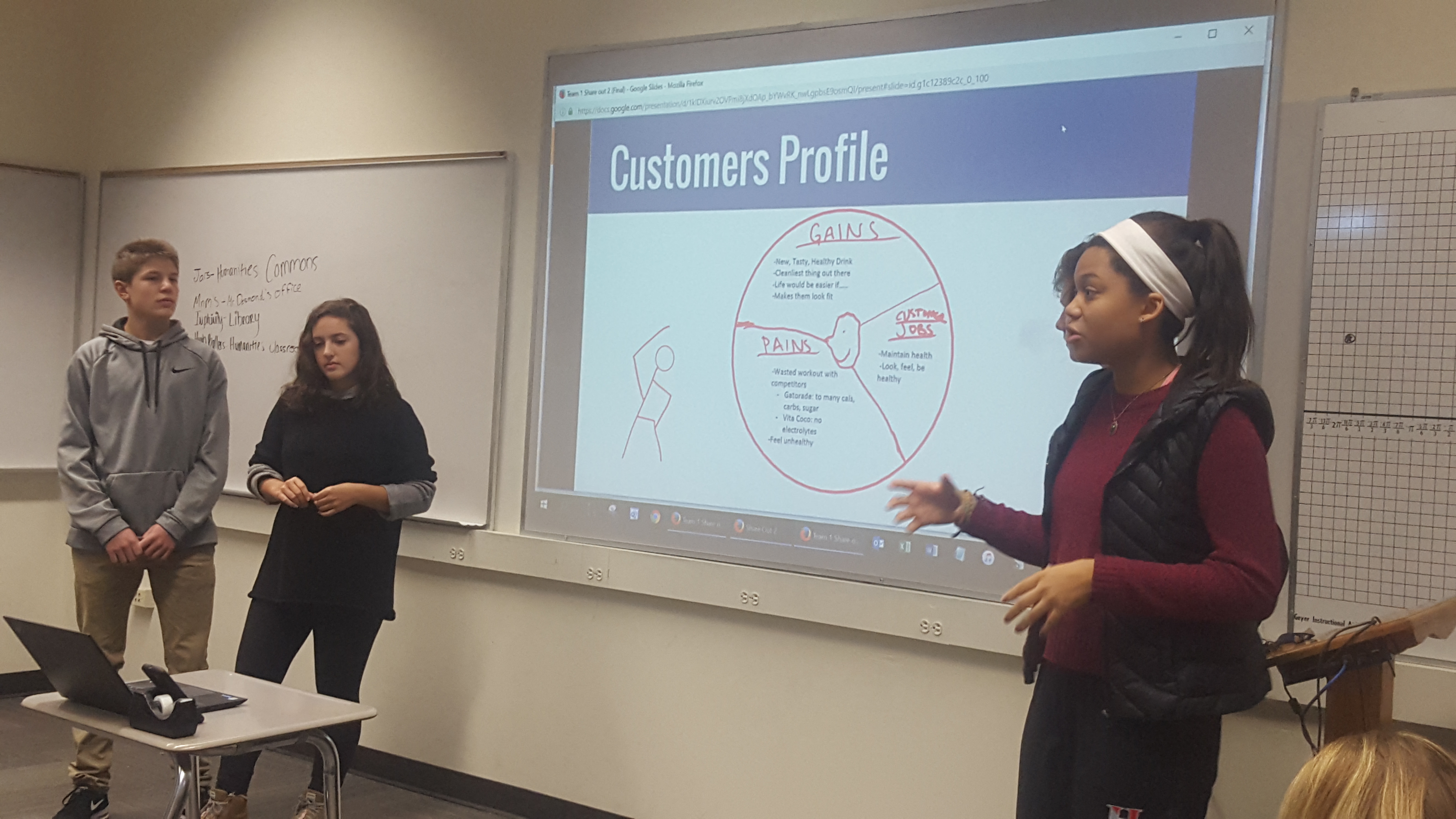
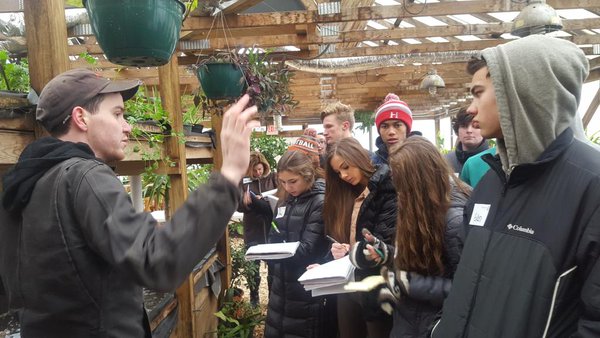
To take on teaming and working on a team and how you do that and how you bring your strengths in, is an academic and not personal exercise in discipline, and really interesting growth.
It’s rich learning there, as you know. Quantitative analysis, qualitative analysis, that what they’re doing matters, that they’re being cognizant of what is going on in the world day to day actually is really relevant to them as 16 or 17 year olds in the work that they’re doing.
That you can’t isolate these things, that it is what they have and using what they have well at this moment, and contributing it and learning how to contribute it and that their ability to work in a way that also not only allows, but encourages, the strength of others, and the contributions of others in a really powerful way that that is what it takes to be successful.
So you don’t have a lecture on why it matters to be empathetic or why it matters to be considerate of the other person, or to listen to the other . . . they learn that when they go do an interview and they come back and the first time, every time, they go out to interview the first time. They come back, and they have gone through their questions that they’ve diligently come up with, like they’re used to in school. “These are the questions I’m going to ask, no matter who I talk to.” They go out, they say, “I’d like to interview you.” They ask the questions, they check the boxes. Doesn’t matter that they’ve gone through the workshop before, that they’ve watched videos before and what it means to interview well.
It’s complicated. It’s nuanced. This is not simple once and done kind of stuff. So they have to go out, do what comes naturally to them, which is the whole typical school-recipe thing, come back and realize nothing they’ve come up with is useful. And then panic because now they’ve lost an entire day.
They thought they were going to get live research, and they have nothing useful. They have fewer days. The clock is ticking. The deadline is when that CEO and their team comes in, and there’s no changing it.
So then they’re all in, and we ask questions that get them to deeply connect with what really are we trying to get out of this interview? What is useful? How do I get that? What does it mean to get that out of the . . . you know. And market research, what good market research looks like.
So they shift from being passive consumers, right?
Alison: Mm-hmm.
Doris: To being actively processing and thinking and anticipating and completely relying on, more than anything else, their ability to problem-solve, to think, to critically . . . to come up with what questions matter most.
Why is this so important? It’s so important because it is a completely different world because of technology, and we no longer need anyone to have memorized whatever it is. That’s not useful.
What we need human beings for, is to come up with what questions matter most, and think really, really creatively about how to solve these complicated problems in an ever-changing world.
So doing this in a class where they’re going to get a grade, and it’s for credit in a high school, makes the students coming in who are completely unprepared for something like this. It makes them all in because they care about their grade. And they care, “Oh, it’s a class. I have to pass this as part of my high school experience. That’s how we get them all in.
Then the other side of it is to show that a student coming in that school has determined is weak, never gotten above a B- or a C+, which in these days is failing on a writing assignment or whatever to show that that student can actually improve their writing to a crazy degree, can actually develop really, really good writing skills by the end of a five-month class or a four-month class.
In school, in a class that is not explicitly an English class with five paragraph essays, that is how you reform education. You show they can learn statistics, actually. And it’s not an AP statistics class. They didn’t sign up for it, and this student who never got above a C on a math test is learning pretty complicated technical things.
As we know when you care about solving something, you care, not because someone tells you you should, but you deeply want to do it. You find a way. You find a way. That’s why I wanted to do this in a high school class. I wanted to show this is what a very challenging, academically rigorous learning can look like that is not an add-on and a little extra, an extracurricular, but that this is how learning should look.
Alison: In a course.
Doris: This is how learning, real learning, great learning can look. That’s really why.


